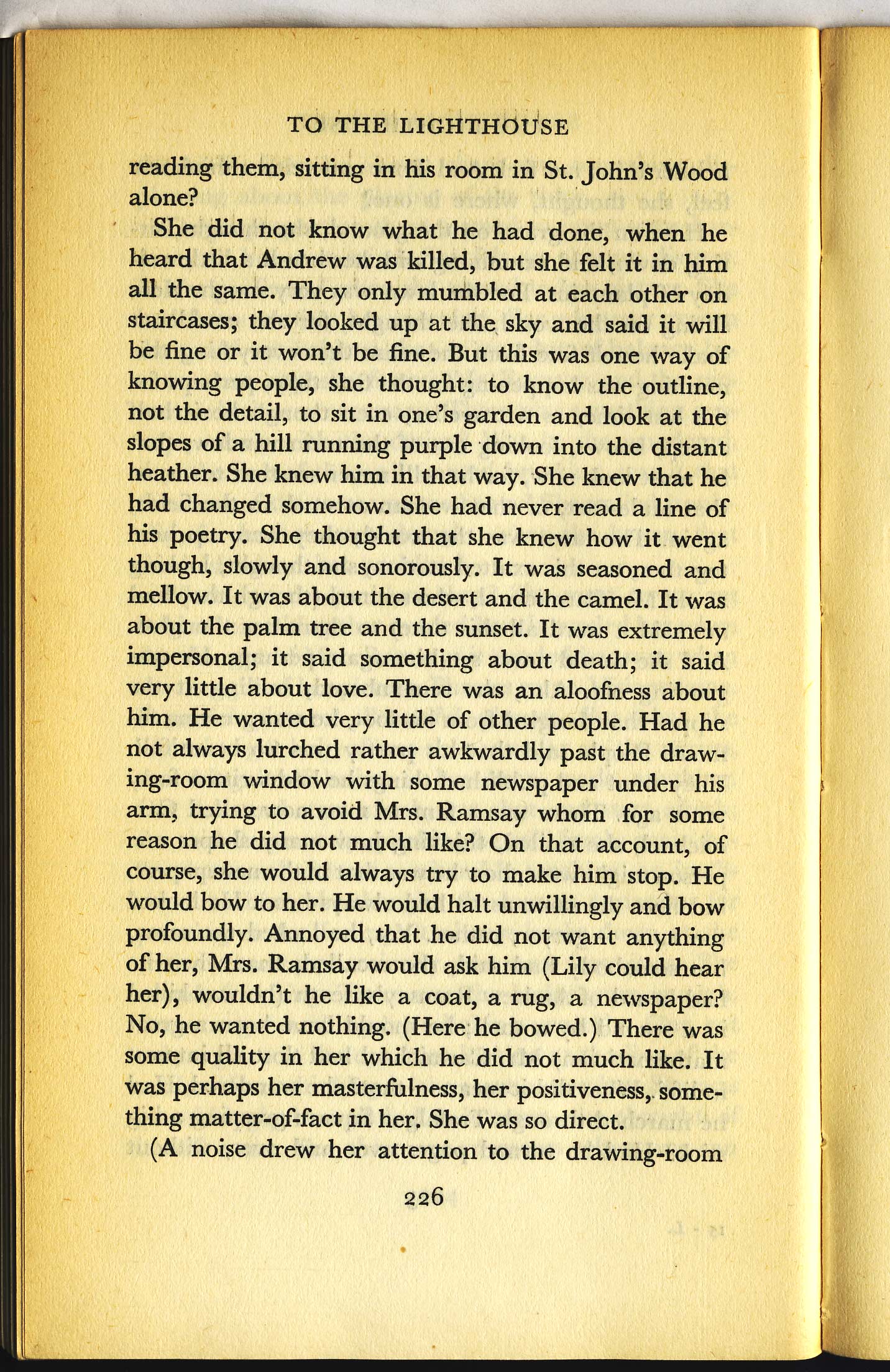
TO THE LIGHTHOUSEreading them, sitting in his room in St. John’s Woodalone?She did not know what he had done, when heheard that Andrew was killed, but she felt it in himall the same. They only mumbled at each other onstaircases; they looked up at the sky and said it willbe fine or it won’t be fine. But this was one way ofknowing people, she thought: to know the outline,not the detail, to sit in one’s garden and look at theslopes of a hill running purple down into the distantheather. She knew him in that way. She knew that hehad changed somehow. She had never read a line ofhis poetry. She thought that she knew how it wentthough, slowly and sonorously. It was seasoned andmellow. It was about the desert and the camel. It wasabout the palm tree and the sunset. It was extremelyimpersonal; it said something about death; it saidvery little about love. There was an aloofness abouthim. He wanted very little of other people. Had henot always lurched rather awkwardly past the draw-ing-room window with some newspaper under hisarm, trying to avoid Mrs. Ramsay whom for somereason he did not much like? On that account, ofcourse, she would always try to make him stop. Hewould bow to her. He would halt unwillingly and bowprofoundly. Annoyed that he did not want anythingof her, Mrs. Ramsay would ask him (Lily could hearher), wouldn’t he like a coat, a rug, a newspaper?No, he wanted nothing. (Here he bowed.) There wassome quality in her which he did not much like. Itwas perhaps her masterfulness, her positiveness, some-thing matter-of-fact in her. She was so direct.(A noise drew her attention to the drawing-room226









